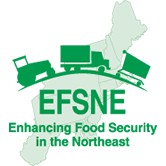Engaging Multiple Audiences: Challenges and Strategies in Complex Food Systems Projects
DOI:
https://doi.org/10.5304/jafscd.2017.074.016
Keywords:
Learning Community, Stakeholder Engagement, Communities of Practice, Community Readiness Model, Systems Modeling, ExtensionAbstract
Note: This is a JAFSCD commentary; it was not peer-reviewed.
Complex projects must manage many challenges, including how to communicate about them. In this commentary, we present and assess the extension and outreach objectives, activities, challenges and outcomes of a complex, inter-disciplinary food systems research project called Enhancing Food Security in the Northeast through Regional Food Systems (EFSNE) project. As an integrated project—defined by USDA as including research, education, and extension—EFSNE focused on the regional food system of 12 Northeast states. EFSNE’s Outreach Team met the project’s outreach objectives by proactively sharing project findings with multiple audiences including participating low-income communities in a variety of ways. We outline the unique framework and rationale from which multiple outreach activities were conducted during the six years of the project. We also describe challenges we faced along the way, including the tension between research and community engagement, and the translation of complex research to multiple audiences. While complex systems projects often take several years to produce results, we believe that a contextually appropriate, coordinated and meaningful ways throughout the project provides significant benefits to multiple stakeholder audiences as well as to the project itself. We believe this compilation of our outreach strategies may inform similar work in other large, integrated complex regional research projects.
Metrics

Downloads
Published
How to Cite
Issue
Section
License
The copyright to all content published in JAFSCD belongs to the author(s). It is licensed as CC BY 4.0. This license determines how you may reprint, copy, distribute, or otherwise share JAFSCD content.












